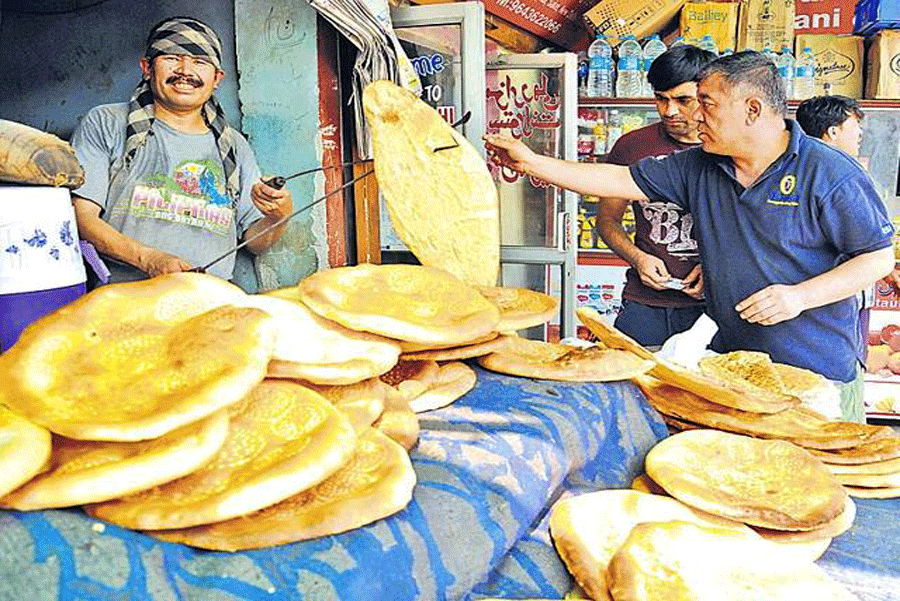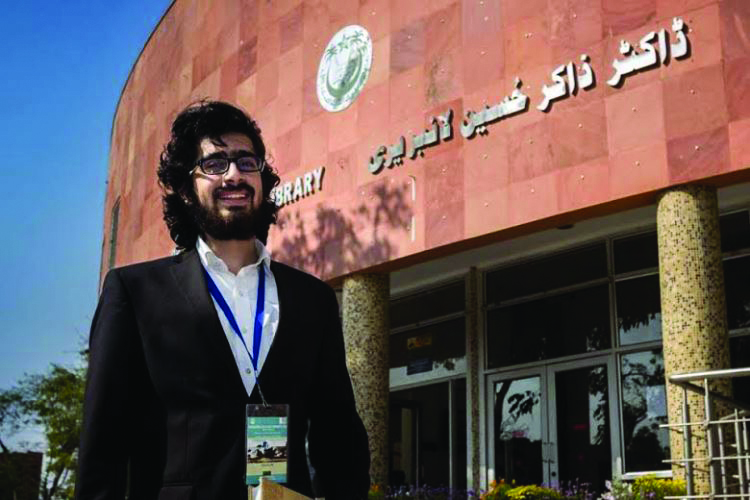
India and Afghanistan have traditionally had close bilateral ties underpinned by civilisational and historical links as well as exchanges between the people. These ties were further strengthened after signing of the Strategic Partnership Agreement in 2011. India and Afghanistan have a shared vision for peace and security in the region and India’s development partnership has been an important element in the reconstruction and rebuilding of Afghanistan. As thousands of Afghans have studied in India over the years, special bonds have been established at the people to people level and there is immense goodwill on both sides. A number of prominent Bollywood stars have Afghan ancestry and the film based on the short story by Tagore, “Kabuliwallah’, created an endearing image of the Afghans amongst Indians.
Afghan diaspora in India
It is estimated that of the around 11,000 Afghani diaspora living in India, the majority are settled in and around Delhi and some in Kolkata and other Indian cities. The Afghans came to India in three phases beginning in 1979 after the Soviet invasion, then after the Taliban took over and in recent years after the ongoing civil unrest and regular terrorist attacks taking place across Afghanistan.
Most fled Afghanistan after Taliban attacks and torture and somehow reached Delhi, where previous Afghan refugees were settled and helped the more recent lot of refugees to rebuild their lives. It is some comfort to them that all those with UNHCR refugee cards, with long term stay visas, are able to live and find work in the informal economy in India. A fairly large number of Afghani students studying in different Institutions across the country also comprise diaspora, albeit temporary diaspora, and contribute to local economies during their stay of three to five years in India.

A number of Afghani diaspora entrepreneurs are running successful restaurants and social enterprises benefitting both themselves and local Indian society. For instance, a group of Afghan refugee women have battled gender bias in their community and are employed under ‘Project Patradya’, producing and supplying edible bowls, cutlery and cups to cafes and ice-cream parlours to be used in place of disposable plastic ones. This in turn helps these women to look after their families, where the husbands are either unable to find work or are too sick to work or were killed by the Taliban in Afghanistan. Some women have set up successful catering ventures and others have opened beauty parlours or set up small shops selling Afghani products. Many of these diaspora women were wives of well-off Afghans but fled due to the constant threats and extortions or after being widowed and are now the sole breadwinners.
Some of the younger diaspora work as interpreters at hospital, for the fairly large number of medical tourists coming to Delhi from Afghanistan. There is a Kabul Street in Lajpat Nagar, Delhi, which is a welcome haven for Afghani diaspora to buy products from home and eat good Afghani food in the street or at food stalls or restaurants set up by the Afghan diaspora. Afghani diaspora youth are studying through the Open School or being given skills training at NGO-run Institutions and some are learning to play football.
The popularity of Bollywood and Indian serials in Afghanistan among the Afghan refugee diaspora in India has ensured that most Afghans are able to speak Hindi and usually find it easy to integrate into Indian culture and lifestyle. Some of the Hindu and Sikh Afghans who came in the early 1990s after facing persecution and death threats from the Taliban have been granted Indian citizenship; others are awaiting a decision on their applications.

Most have set up small shops and are running small scale enterprises creating employment and contributing to local economies, like the other Afghani diaspora in India. The status of refugees in India is governed by the Foreigners Act and in the absence of a refugee law many are unable to get access to education, jobs and healthcare, and decisions taken are administrative with different groups being treated differently. Refugee protection is delivered in an ad hoc manner through complimentary legal and administrative structures. Though most of the Afghans came to India as refugees, the Afghan diaspora in India has over the years integrated fairly well in the local society especially the old diaspora who have become Indian citizens. The recent diaspora comprises mainly refugees who have fled the conflict, killings and torture by the Talibans and other terrorist groups but found solace and safety in India.
Many have tried to rebuild their lives through employment in the informal sector in and around Delhi and other cities, but also through setting up small enterprises, including the significant Afghan women diaspora who have been quite enterprising and hardworking. The small ‘Kabuls” as they are called have been instrumental in helping other more recent refugees settle in and the young students coming to study in India, find these to be a home away from home. Those coming for medical treatment from Afghanistan stay in hospitals but their relatives and others usually stay in small guest houses in the areas close to the little ‘Kabuls’ or in those guest houses run by the diaspora, where Afghani food is easily available.
The enterprising Afghani diaspora has been contributing to the local economy in India and to the economy of Afghanistan, their home country, as well. The connect at the people to people level is fairly strong and is reflective of the close India-Afghanistan relationship at the government level, which is further buttressed by the popularity of Bollywood among the Afghani diaspora.
– Amb. Manju Seth








